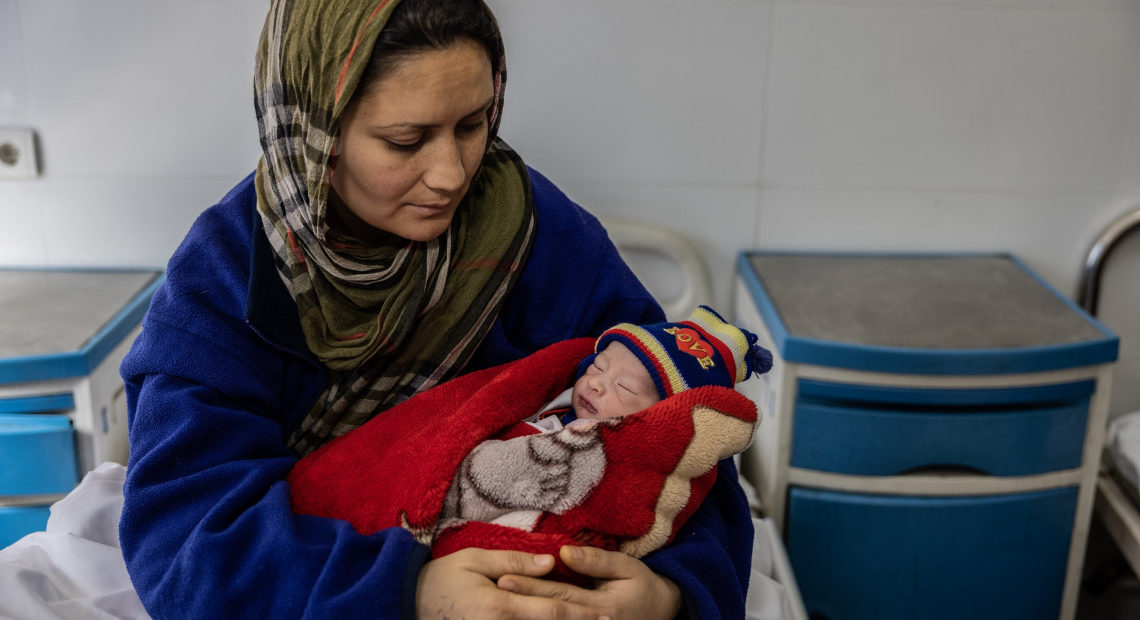Geneva (ICRC) – Gains in maternal and child health risk being lost if the international community does not step in to support Afghanistan’s flailing public infrastructure, warns Peter Maurer, President of the International Committee of the Red Cross (ICRC), ahead of the High-Level Pledging Event on Supporting the Humanitarian Response in Afghanistan 2022.
NEWS RELEASE 31 MARCH 2022 AFGHANISTAN
“The high maternal mortality rate in Afghanistan makes the specialized health services in ICRC-supported hospitals, especially on maternal health issues and prenatal/neonatal care, even more important for pregnant women and newborns,” said Mr Maurer.
Our priority remains supporting the health system in Afghanistan, but the international community must step up its support as humanitarian organizations cannot effectively replace a functioning public sector, nor can they fully meet the needs of the Afghan population.
The banking and liquidity crisis in Afghanistan cuts public health infrastructure off from the funding needed to pay for staff salaries, running costs, medicines and fuel to run ambulances. To bridge this need, the ICRC launched financial and technical support to 33 hospitals and their staff to ensure access to medical care free of charge in November 2021.
For its part, the ICRC is today announcing a budget extension appeal of CHF 53 million, raising the overall operational budget in Afghanistan to around CHF 200 million.
The Hospital Resilience Project was established to initially support 18 hospitals for a period of six months. Since then, the ICRC has scaled the project to support 33 hospitals in total, including eight teaching hospitals which certify thousands of male and female health professionals each year. The project now pays the salaries of nearly 10,000 health-care staff, the cost of medicines and hospital running costs.
ICRC’s total budget enables ICRC to:
- Extend support to hospitals and health staff until the end of 2022 through the Hospital Resilience Project, enabling 750,000 consultations per month.
- Expand its protection and assistance work in places of detention, including the provision of food for up to 10,000 detainees as well as providing prison authorities with the required technical support in managing the food-supply chain and nutrition.• Continue care provided at seven rehabilitation/orthopedic facilities in Kabul, Jalalabad, Gulbar, Faizabad, Mazar-i-Sharif, Herat, and Lashkar Gah.
- Support livelihoods for vulnerable households, including women-headed households through cash assistance and direct support to farmers.
- Increase access to water by repairing hand pumps, building or rehabilitating water towers and supply networks, and/or donating fuel, equipment, consumables and spare parts.
- Reconnect families who have been separated through our Restoring Family Links network.
The ICRC has served the people of Afghanistan for more than 30 years. We are operational across the country, together with our partner the Afghan Red Crescent. We currently have a team of over 1,800 staff who provide diverse humanitarian assistance, include health care, rehabilitation support, protection, water and sanitation, and economic security. Our teams are present in Khost, Herat, Lashkar Gah, Kandahar, Kabul, Mazar-i-Sharif, Kunduz, Faizabad, Jalalabad, Ghazni, and Farah.



Comments